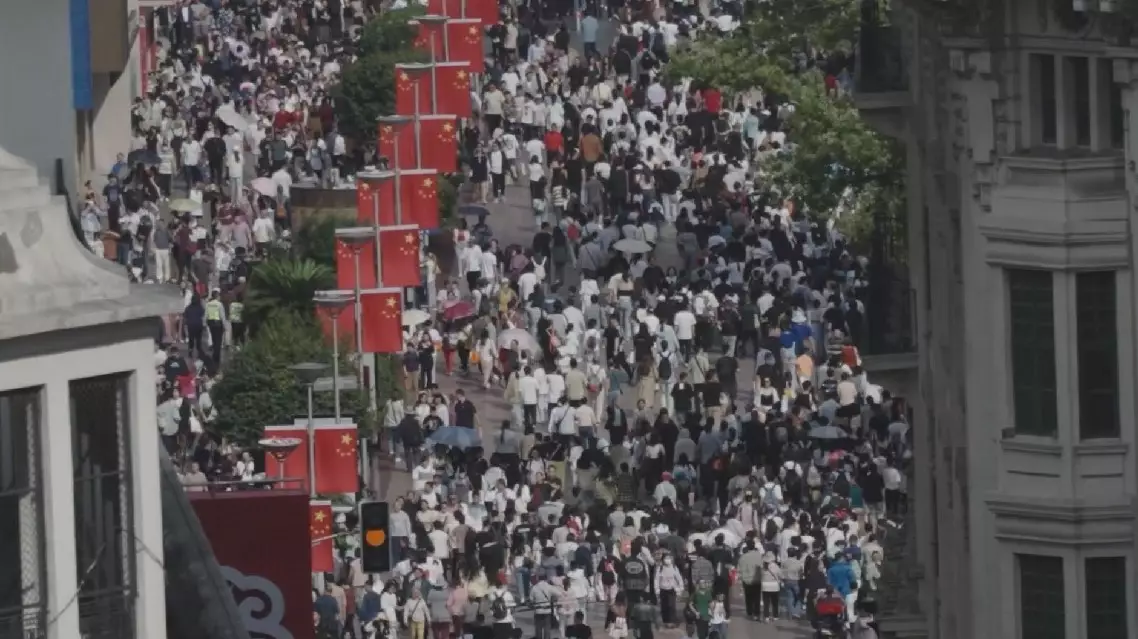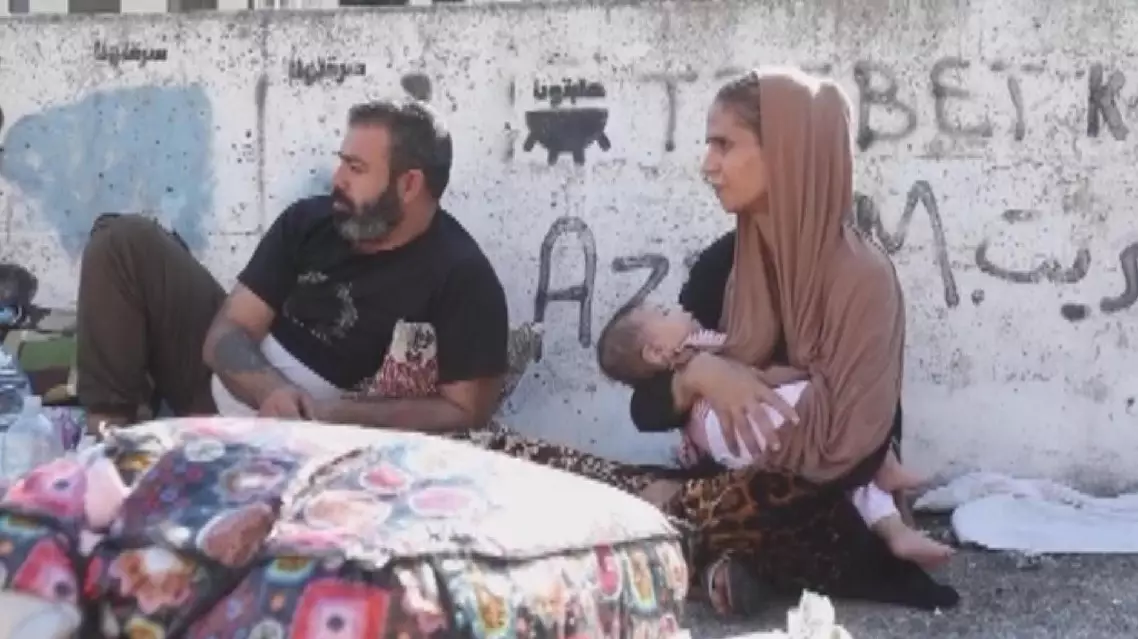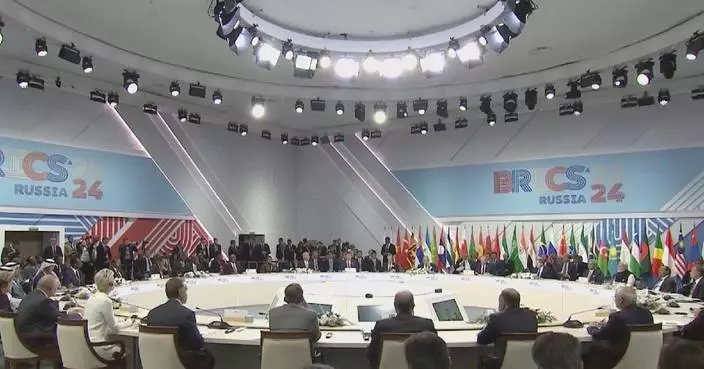A series of government stimulus policies energized consumer spending during China's National Day holiday, which ran from Oct 1 to 7, sparking optimism among foreign investors about the country's economic prospects.
This year's week-long holiday saw strong consumer spending across the nation. In cities like Nanjing in east China's Jiangsu Province and Taiyuan in north China's Shanxi Province, shoppers have been snapping up bargains on home appliances, spurred by trade-in incentives and promotional offers.
The automotive sector also saw a resurgence, with nearly 20 cities, including Tianjin Municipality in northern China and Suzhou City of Jiangsu, hosting auto shows that attracted large crowds. These events, coupled with various incentives such as trade-in subsidies, have raised interest in car purchases.
"The government provides a scrap subsidy of 20,000 yuan (about 2,850 U.S. dollars), and with the additional discounts from brands, it makes the overall deal quite attractive. It really saves us a lot of money," said a consumer.
Prior to the holiday, the government implemented a series of measures, including cutting the reserve requirement ratio for banks and lowering mortgage rates on existing home loans, to boost market confidence.
These policies have garnered a positive outlook for China's economic future from international investors. Prominent investment firms, including U.S.-based Goldman Sachs and Morgan Stanley, as well as Switzerland's UBS, have expressed their optimism and confidence in China's economy.
"Major financial institutions from the United States, Europe and the Asia-Pacific region have released reports that are broadly optimistic about China's economy and stock market. Many have also raised their investment ratings, reflecting strong expectations for China's economic and capital market performance," said Bai Ren, executive director of the Bank of China International Holdings Securities Limited.

Stimulus measures spark consumer spending surge in China during National Day holiday
Israeli strikes on Lebanon have left many people in urgent need of medical care, adding pressure to an already struggling healthcare system of the country.
Since Sept. 23, the Israeli army has been conducting intensive airstrikes on Lebanon in a dangerous escalation with Hezbollah.
While Israel claims it is targeting Hezbollah, the offensive has destroyed hundreds of homes, devastated border villages, and resulted in the deaths of over 2,000 people.
According to a report released Tuesday by the Disaster Risk Management Unit at the Lebanese Council of Ministers, the death toll from Israeli airstrikes on Lebanon since the onset of the Israel-Hezbollah conflict has reached 2,530, with injuries totaling up to 11,803.
Dr. Mazen Alameh, the manager of a small hospital in southern Beirut, is among those dealing with the aftermath.
"We are one of the hospitals that have received many injured patients, especially given our location. An explosion nearby damaged the hospital, forcing us to move patients to other facilities with the help of the Lebanese Red Cross. Since then, we have been operating only for emergency cases. Most of the remaining medical teams and staff sleep at the hospital; we prefer not to leave due to the difficulty of moving around, so they work 24 hours a day," said Alameh.
Suleiman Haroun, president of the Syndicate of Hospital Owners, noted that medical facilities across the country are under pressure, not just in the regions directly affected by Israeli attacks.
"The problem is that hospitals in 'safe areas' are also overwhelmed. For example, most dialysis patients have relocated to these 'safe areas,' so the dialysis centers in these hospitals are inundated with patients. Even before the war, these centers were already operating at full capacity," said Haroun.
Other areas are also suffering under Israel's military offensive. The conflict has put immense pressure on hospitals and the healthcare system in general, particularly with the influx of displaced people in Lebanon.
UNICEF warns of a potential outbreak of infectious diseases due to the displacement of over 1.2 million people - nearly 25 percent of the population - into the streets or inadequately equipped shelters.
"We're concerned at the moment about the spread of waterborne diseases like cholera, diarrhea, hepatitis because when water systems and health services are interrupted or destroyed in some way, that can impact children's access to safe water and also increase the spread of waterborne diseases. If it escalated any further, that would definitely be catastrophic for children, and we're trying to prevent that," said Tess Ingram, spokesperson of UNICEF Middle East.
Despite international condemnation, Israel has been accused of targeting the country's healthcare infrastructure, making it increasingly difficult to provide services.
Officials warn that there is an urgent need to end the conflict, as Lebanon's healthcare system can only survive for a few more weeks before it completely collapses.

Israeli airstrikes overwhelm Lebanon's healthcare system










